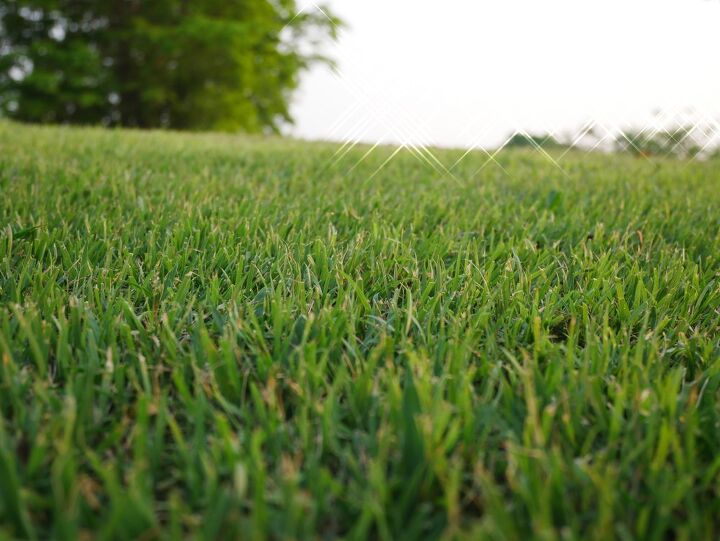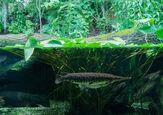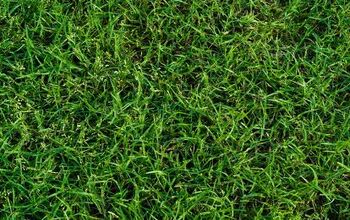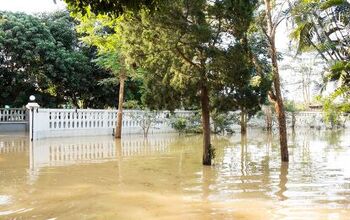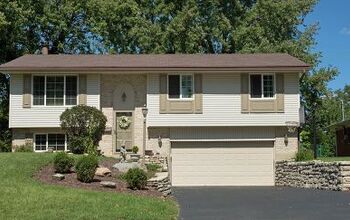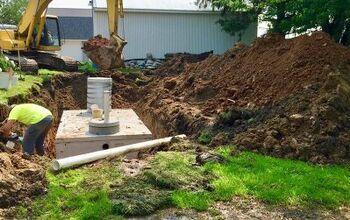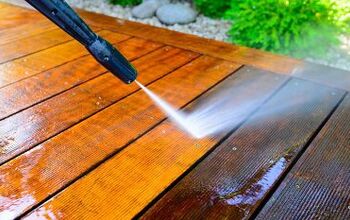Bermuda Grass Vs Fescue: Which Is Right For Your Yard?

Having a nice-looking lawn comes with its own set of responsibilities and maintenance. When choosing between Bermuda and fescue grass, there are a few things to consider. We are going to show the differences between the two, and which might be the right one for your lawn.
The main different between Bermudagrass and Fescue is that bermudagrass has a darker green color and grows two inches shorter than tall fescue. Bermudagrass generally takes more maintenance and is harder to get started than Fescue. Fescue tends to thrive better during winter months, while Bermudagrass does better in warm, Southern climates.
Both kinds of grass, have some pros, and cons, so we are going to go over them in detail, so you can make an informed decision to which is right for you. In this guide, we will provide you with all the information you need to know.
Do You Need Sod Installation Services?
Get free, zero-commitment quotes from pro contractors near you.

How To Select Grass For Your Region
To select the best type of grass for your region, you need to know what qualities the grasses have, and the temperatures they thrive in. Some grasses are limited to the southern areas, such as Bermuda grass. However, other grasses only grow well in the northern climates. Some do well in both environments.
To get the perfect turf, you must do a lot of due diligence. Start, by being as informed as possible, on which grasses do the best in your area. Fescue grass does best in cool climates and is perfect for the northern, and northwest regions. It can be grown in some southern climates as well. Make sure that you do your research to find out which region and zone you are in. The more you plan ahead, the better prepared you will be.
Bermuda Grass vs. Fescue Grass
These grasses have some differences and some similarities. Let’s take a look at them, side by side, to get a good idea of which one is perfect for your yard.
Bermuda Grass vs. Fescue Grass Comparison Chart
| Bermuda Grass | Fescue Grass |
| Bermuda grass does well in warm climates and grows best at 75° F to 95° F. | Fescue grows well in northern climates. It grows best at 55° F to 75° F. |
| Grows best in USDA zones 7 -10. | Grows best in USDA zones 2-7 |
| Bermuda has a medium-textured turf. It grows fast and can be considered invasive. | Fescue is a taller grass, that gets a thicker turf than Bermuda grass. |
| This grass does not like the shade and will go dormant in the winter months. | A fescue lawn is tolerant of shaded areas, and cooler climates. It can survive in the heat. |
| The blades on Bermuda, are thick and coarse. They work well for sports fields. | Fescue also has thick blades. It makes a dark green turf. It can be used on sports fields. |
| You can mow Bermuda grasses at medium, to moderate heights. | The fescue grass is taller. It is usually kept at around 1 ½ inches or more. |
| Bermuda can be grown from seed, or placed on the yard as sod. It takes longer to grow. | Fescue can be grown from seed or placed down as sod. The seeds grow fast. |
| Bermuda grass is more expensive and takes more maintenance. | Fescue costs less than Bermuda and has multiple varieties, such as fine fescue. |
There are many advantages to each one of these, depending on the climate you live in. Fescue delivers nice thick grass, with a dark green, almost blue aesthetic. While it is used primarily in the northern states, it can grow well in moderately warm climates as well.
Pros And Cons Of Bermuda And Fescue Grass
Let’s look at some of the pros and cons of these two types of grasses.
Bermuda pros:
- The turf is tough and holds up well to heavy foot traffic.
- It takes less water and does well in drought seasons.
Bermuda Cons:
- Does not grow well in shady areas, or during the winter.
- Bermuda can be considered invasive. It takes over other grasses.
The fescue grass also has its advantages and disadvantages.
Fescue Pros:
- Fescue has a thicker turf, with a beautiful color.
- It can survive through summer, and droughts, by going dormant.
Fescue Cons:
- It takes a lot more water to keep fescue grass looking sharp.
- Fescue will get very tall, if it is not kept mowed and maintained.
Which Grass For What Climate?
Bermuda grass recovers better than fescue grass. However, fescue grass can grow in more than one climate. So, if you plant bermuda grass in an area where it doesn’t flourish, it’s easy to recover it and get it to grow. However, if you plant fescue in a colder climate, it may have a better chance of survival, but it will be pretty difficult to recover it.
The type of grass you choose pertaining to your climate depends on whether you have a gift of staying on top of your grass to ensure that it doesn’t die off. Perhaps, in more inclement environments, fescue grass is better because of its ability to flourish in all weather types. But, if you’re worried about recovering the grass, the bermuda would be the way to go.
How Much Fertilizer Do They Need?
These grasses take a similar amount of nitrogen fertilizer. The only difference is the time of year and season that you apply it. You apply fertilizer when the turf is actively growing. Since these two kinds of grass, have different peak growing seasons, you apply fertilizer to each as they reach their peak season.
For Bermuda, you start to fertilize late spring through early fall. You do not want to fertilize it any other time of the year. On the other hand, for Fescue, you add fertilizer during the spring, and fall months. This grass still does very well into late fall. Avoid fertilizing through the summer months.
Tips For Growing Bermuda Grass
Here are a few tips to help you grow Bermuda grass:
- Avoid growing this grass, if you live in the northern states. Bermuda does not like cold weather and will not grow well.
- Keep up with trimming and edging this grass. It can be invasive and will take over other lawns, or sidewalks, if left unmaintained.
- Starting Bermuda grass from seed is easy. It takes a while for Bermuda to get started but once it does, it grows extremely fast. Have patience, and stay vigilant.
- With the right maintenance, Bermuda makes a great sports turf. Once this grass gets thick, it makes a hardy turf. Give it a lot of water and keep the weeds out.
Bermuda is a nice looking grass, for lawns, commercial properties, and sports fields. As long as you live in the southern climate, where it grows, you will have a beautiful lawn.
Tips For Growing Fescue Grass
Here are some nice tips for growing fescue grass:
- Make sure that you give fescue plenty of water. It has a thick, and luscious turf, that looks amazing when maintained.
- Do not plant fescue next to an invasive type of grass. Growing fescue next to Bermuda is not a good idea.
- You can plant fescue from seed. This grass will seed very quickly and is very easy to maintain. Just don’t let it get too tall, left unattended it can get up to 3 feet tall.
- Fescue grass sometimes gets fungal diseases. Make sure to keep on top of these types of conditions, and treat them quickly.
You should never plant these two kinds of grass together. If you are dealing with that situation, you will need to keep the Bermuda grass edged, and trimmed. Bermuda is considered a weed in many parts of the country.
Related Questions
How far south can fescue grass be planted?
As far south as, USDA zone 7. This extends into parts of Texas and other southern states. It can still maintain its turf in mild heat temperatures. In droughts, it will go dormant, and remain alive.
Which of the two are better for sports fields?
Both of these turfs make excellent sports fields. Bermuda makes a thick, coarse turf, that can hold up to the most traffic. Fescue also holds up well but takes longer to recover.
Is it hard to grow fescue grass?
No, it is not hard to grow fescue grass as long as you plant and care for it properly. Also, you need to check to see if your particular area is a good one to encourage fescue to grow. If you don’t have the ideal climate, it may be more challenging.
Do You Need Sod Installation Services?
Get free, zero-commitment quotes from pro contractors near you.

Wrapping It Up
In order to get any type of grass to flourish, whether it be fescue or bermuda, you first need to ensure that you have the proper type of grass for your particular region. Planting any grass where it’s going to have a problem thriving will be more challenging to grow, no matter the type.
It’s also essential to make sure you care for your lawn after having planted the grass. The success in growing the grass doesn’t just come down to where you plant it or what type you plant. It also depends on the maintenance you provide and the time you dedicate to caring for it.

I'm a writer that is passionate about home improvements, remodeling, and renovating. I enjoy learning new skills and techniques and sharing them with others.
More by Chad Kilpatrick



